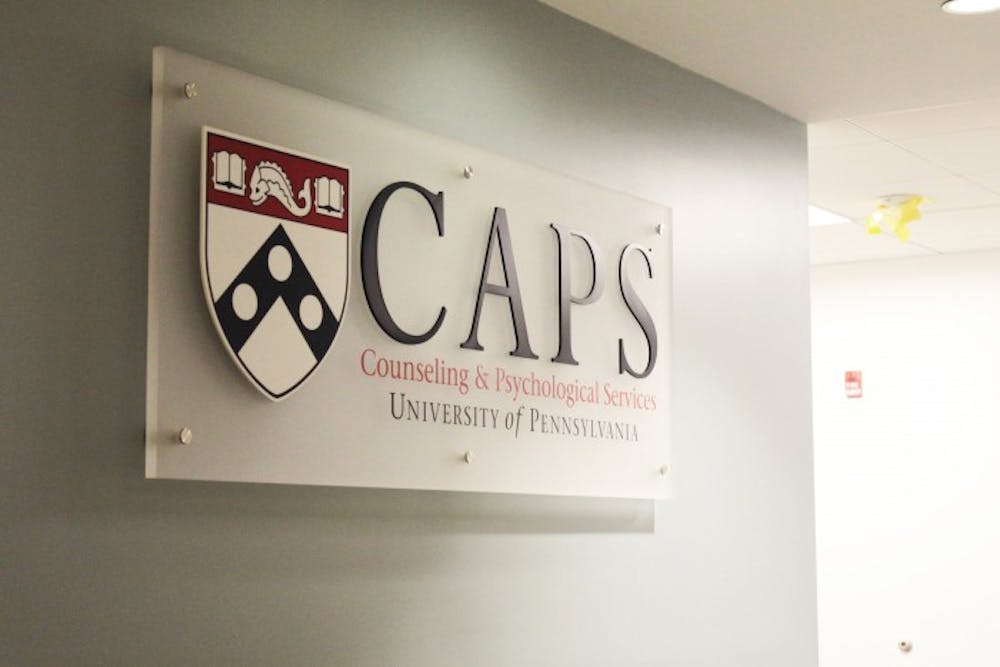After four students died by suicide in the 2013-2014 school year, Counseling and Psychological Services convened to tackle the state of mental health at Penn.
The result was “I CARE” — a mental health program that trains groups to recognize problems, support peers and learn the proper steps to take when a mental health issue arises. Now, the College Dean’s Advisory Board intends to train at least one member of every registered student group on campus in I CARE.
“The Dean’s Advisory Board recognized that this is a program that could be and should be expanded,” said Matt Foman, College junior and head of DAB’s mental health subcommittee. “So many clubs and organizations have such a social component to them that any club or organization that you might be in is like a community that could serve as a support system.”
CAPS has trained more than 1,800 students and faculty members at Penn through various open and privately scheduled training sessions since it launched. I CARE has yielded a success rate of 97.9 percent, as reflected by the share of students who indicated on their post-training evaluation that they would recommend the I CARE workshop to a friend.
CAPS Director of Outreach and Prevention Meeta Kumar said she and her team at CAPS aim to train as many students as possible to foster dialogue on mental health, and they hope that working with DAB will help target specific groups of people — such as the greek community — to achieve the best results.
“We would like to have as many [people] trained as possible,” Kumar said. “But also think about who are the really important gatekeepers on this campus, people that really should be trained because of the nature of their role or of the kind of interface that they have with students.”
Foman explains that DAB has honed in on greek organizations as the perfect example of a community in which “people are willing to talk with their friends about things that they might be going through.”
This will be the starting point of the initiative, and by the end of the semester, DAB hopes to have at least one student from every chapter trained in I CARE.
“[Being in a fraternity or a sorority] can be a great stress reliever, but there are definitely great opportunities for it to stress you out,” Foman said. “So we think it’ll be a really powerful thing to have the conversation really center around greek life, and I CARE has the capacity to mold their workshop around topics that might be particularly prevalent in that group.”
As Vice President of Sigma Alpha Mu fraternity, Foman said he always makes an effort to let members of his fraternity know that he is available for support, but he has witnessed firsthand the impact of the “macho culture where you don’t want to talk about your feelings,” which he thinks I CARE has the potential to overcome.
“The nature of greek life, and honestly at Penn in general, is kind of like, everyone is dealing with stuff and you don’t want to throw your problems on people,” Foman said. “And when you’re around people that are doing so many great things, it’s hard to admit you’re going through problems, even to your best friends.”
I CARE has already been a topic of conversation within the greek community. During the sorority recruitment process next year, the recruitment guides — known as “Rho Gammas” — will now go through I CARE as part of their training. This option was chosen as a way to better support the mental health needs of potential new members over other options, including bringing in CAPS counselors or student members of Penn Benjamins during recruitment week.
“We felt like it would be better to have Rho Gammas themselves be the main source of advice for PNMs because they’ve been through the process,” College junior and Penn Panhellenic Vice President of Recruitment Andrea Klein said. “They know a lot more about how recruitment works and they develop relationships with PNMs throughout the whole week so we kind of caught on to I CARE as a way of training them even better in counseling skills, so they could be there for the PNMs.”
As of now, residential advisors and graduate associates, as well as certain members of Wharton undergraduate clubs, are required by the respective heads of their groups to undergo I CARE as part of their training. While CAPS cannot require any independent student group on campus to undergo this training, CAPS staff and DAB members see this as an idea with a lot of potential that is already being received positively.
“Greek life has wanted to tackle mental health for a while and make it a priority and hasn’t necessarily known how,” Foman said. “This I CARE training is just a really awesome way to get the conversation going, and I really hope that greek life is just the beginning of this and we can continue to expand it to different areas around Penn.”









